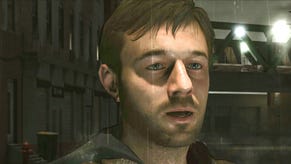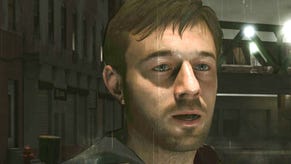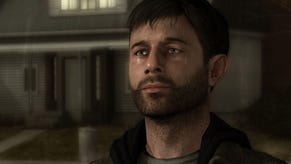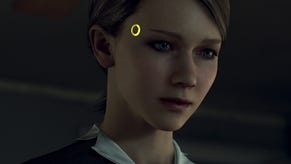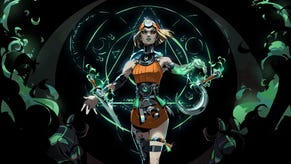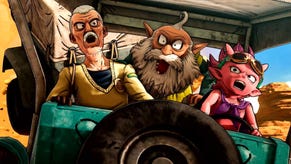Heavy Rain
The weather forecast.
This is one way the scene could play out. At several points - here, in the car, during the fight in the workshop - it would be entirely possible for Jayden to die. If he does, that's it, his story ends and you won't go back and restart (well, you might get a couple more tries first). You'll miss his perspective on the story, you'll miss trails and leads, and the other threads will be affected.
This is a very brave decision by Quantic. At a stroke it eliminates the repetitive nature of cinematic "quick time event" games that breaks their narrative flow; normally you're left stuck in a loop until you've met the (often frustrating) conditions for success, but Heavy Rain just accepts that's what's happened, and moves on. But, we wonder, will gamers be able to overcome their endlessly conditioned instinct to try and try again, save every character and see it all? Won't that necessarily be the "best" story? Cage suggests not.
"We don't want to stop it, the goal is not to frustrate [the player]," he says. "But we want to convince him that it's in his benefit and his interest not to play the game that way. Maybe we'll fail, I don't know... But I think the best story is maybe not with all four characters alive."
At any rate, keeping them alive might not be a constantly pressing concern. Quantic has opened the bidding with a particularly action-packed scene, but points out that much of the game's eight to ten hours will consist of less dangerous exploration. And it's not necessarily a murder mystery.
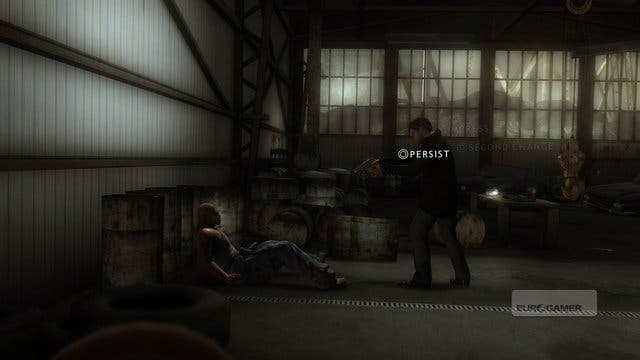
"Yeah, there's references to American dark thrillers, Seven is one of them, Silence of the Lambs is another... But honestly, it's really not a game about a profiler from the FBI investigating a serial killer - that's a part of the story, but it's not the story," Cage says. "I think everything is in the tagline, 'How far are you prepared to go to save someone you love?' This is really what the game is about... The game is an emotional simulator. If it was happening to you, what answer would you give to this question?"
It clearly matters to Cage. "I think it's probably the first thing I write for a game that relates to my personal life, and I hope that people feel that. That there's someone trying to tell a real story that relates to him."
There's a focus on emotional, instinctive choice - rather than the didactic obsession of so many games with "moral" choice - in Heavy Rain that sets it apart. The unique narrative set-up, with four distinct and terrifyingly mortal lead characters, is also an exciting departure. In everything else, Quantic's conviction is as impressive as its skill (more so, in some areas), but it's hard to tell just how far Heavy Rain will go in breaking down those gaming paradigms Cage is so keen to leave behind.
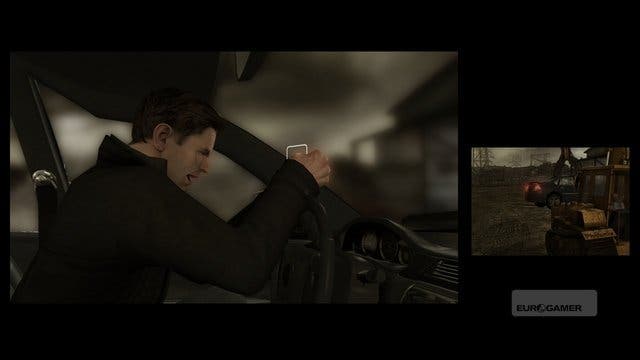
Playing through the scene a couple of times, it was easy to deviate in small details (discovering fingerprints, the flow of a conversation) or very major ones (dying, or not) - but the course of events still felt fairly locked-in, the player's power to truly shape the narrative quite limited. The digital actors looked astonishing and behaved convincingly, if a little stagily - but despite the attentions of Hollywood script doctors, there were still some clunky lines.
It could be that Heavy Rain isn't much more than a remarkably beautiful and slick narrative adventure game for the next generation. It wouldn't be the worst thing in the world if that's what it did turn out to be - but we'd still bet against it. Because David Cage is making it, and he likes to do things differently.


